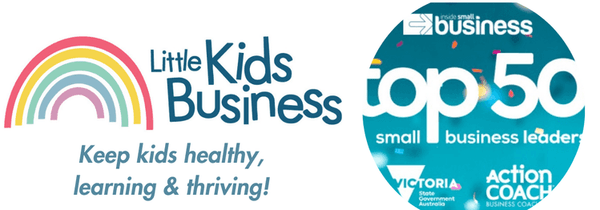Are you dreaming of starting your own business but don’t know where to start? I've been in your shoes. As a single mum, I had to juggle bills, childcare, and a full-time job. But I managed to start not one, but two side-hustles on a shoestring budget. And now, they're my main source of income. In this article, I'll share some tried-and-true tips to help you become a successful mumpreneur without breaking the bank.
The Mumpreneur Advantage
Being a mum equips you with skills that are invaluable in the business world. Think about it: multitasking, time management, and endless creativity (remember those last-minute school projects?). These are all skills that have helped me in my entrepreneurial journey.
Here are the essential steps to follow:
1. Setting Realistic SMART Goals
The first step in any venture is setting realistic goals. I'm talking about SMART goals—Specific, Measurable, Achievable, Relevant, and Time-bound. For example, instead of saying, "I want to make more money," try something like, "I aim to make $1,000 in sales from my Etsy shop in the next three months." This goal is specific, you can measure it, it's achievable if you put in the work, it's relevant to your business, and it has a deadline.
2. Budgeting Basics
Budgeting is the backbone of starting a business on a budget. You need to know where your money is going and how much you can allocate to your new venture. I started with a simple Excel spreadsheet to track my income and expenses. There are also plenty of free budgeting apps out there that can help you stay on track. The key is to start small - you don't need a fancy office or the latest equipment. Work with what you have and scale up as you go.
3. Finding Your Niche
One of the biggest mistakes a new entrepreneur can make is trying to be everything to everyone. Finding your niche is crucial. For me, it was handmade baby clothes. Your niche should be something you're passionate about, but it should also be something other people are willing to pay for.
Here are some options you could consider:
Small Business: This is where I found my calling—handmade baby clothes. I started small, making outfits for my own kids, and soon realized there was a market for unique, quality items. I started selling to friends and family, and now sell at local markets, and online. Your small business could be anything from a bakery to a consulting firm. The key is to find something you're passionate about.
Investing: If you have a knack for numbers and market trends, investing could be your niche. Whether it's stocks, bonds, or mutual funds, investing allows you to grow your money over time. This is also where you can be a role model for your teenage kids. These days it’s easy for anyone of any age to start investing. And, it’s a great way for your kids to start learning entrepreneurship as soon as possible.
Property Development: Have an eye for real estate? Property development could be your path. From flipping houses to developing commercial properties, this niche can be quite lucrative but can require more money up-front
E-commerce: With the rise of online shopping and drop shipping, e-commerce is a booming field. You could sell anything from handmade crafts to digital products. Platforms like Etsy and Shopify make it easier than ever to start.
Content Creation: If you're creative and enjoy storytelling, consider becoming a blogger, YouTuber, or podcaster. With dedication and a unique angle, you can turn your content into a profitable business.
Consulting or Coaching: If you have expertise in a particular field, such as marketing, health, or personal development, you could become a consultant or coach. This is a great way to leverage your knowledge and help others achieve their goals.
Your niche should align with your skills and interests, but it should also have a market demand. Do your research, find a gap in the market, and position yourself to fill it.
4. Low-Cost Marketing Strategies
Marketing doesn't have to cost an arm and a leg. In fact, some of the most effective marketing strategies are virtually free. Social media is your best friend here. I started by creating a Facebook page and an Instagram account for my baby clothes business. Posting regularly and engaging with my audience helped me build a loyal customer base. Don't underestimate the power of word-of-mouth either; happy customers are your best advocates.
5. Balancing Business and Family
Balancing a new business and family life is no small feat. What worked for me was setting clear boundaries. I designated 9am to 2pm Monday to Friday for my business and made sure to spend quality time with my kids. It's all about finding a routine that works for you and sticking to it. Remember, it's a marathon, not a sprint.
6. Funding Options
Starting a business on a budget means you'll likely need some form of funding. I began by bootstrapping—using my own savings and revenue to grow the business. As I expanded, I explored other options like crowdfunding and a small business loan. Each has its pros and cons, so do your research and choose what fits your needs best.
7. Learning and Growing
The learning never stops, especially in the business world. I took advantage of free online courses and webinars to expand my knowledge. Training and courses offer a wide range of courses that can help you improve various aspects of your business. Don't shy away from learning; it's the best investment you can make.
Starting a business on a budget is definitely challenging, but it's far from impossible. As a single mum who started with just a dream and a tight budget, I can tell you it's doable. With the right mindset, realistic goals, and a solid plan, you too can become a successful mumpreneur. So go ahead, take that first step. Your future self will thank you.
Guest Post Written by: Amber Aldridge
 |
Amber Aldridge is a Lead Writer at MoneyMaver and a background as a teacher, adeptly shares practical advice that benefits families striving to manage their finances, covering personal finance, budgeting, and debt management - drawing real-life experiences from being a single mom of 2 kids. Amber passionately champions the cause of individuals who feel excluded or overlooked in the present-day economy and deeply supports those who face challenges in today’s economic landscape. |


